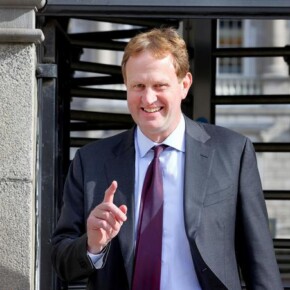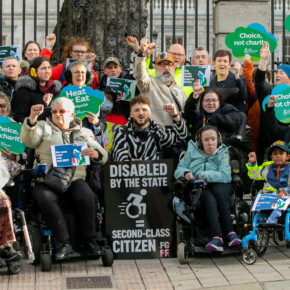Reforming water services in Ireland
Dublin People 14 Jun 2014AFTER detailed work and analysis, the Government has finalised a likely average annual water charge of e240 per household, subject to final assessment by the regulator, the Commission for Energy Regulation (CER). The CER will make its final decisions on the tariff level in August.
In giving householders visibility around the level of water charges, the Government has honoured its commitment to provide a free allowance. Every household will receive an allowance of 30,000 litres per year.
To put this in context: an average Irish household (2.7 people) uses about 142,000 litres per year. For households with children, the normal water consumption of children will be covered by an additional free allowance per child, effectively making children’s water usage free.
In making its decisions, the Government has sought to protect those facing potential affordability issues. I intend instructing the regulator to cap charges for people with high water usage due to certain medical conditions. The additional allowance for children will help large, young families.
The absence of a standing charge (except possibly on houses not permanently occupied, such as holiday homes) will help householders living on their own, whilst also incentivising reduced water usage.
Pensioners, persons with disabilities and carers who receive the Households Benefits Package will receive assistance with paying water charges, equating to approximately
?¬100 a year. The exceptional needs payment system will remain available for people experiencing severe financial difficulties.
I also intend instructing the regulator that Irish Water will have to take account of the quality of service provided to customers, including circumstances of reduced or restricted services, such as boil water notices. Some of the public do not receive the drinking water quality most of us take for granted. Irish Water will have to respond when services are inadequate.
Any new charge brings financial imposition for the public. The Government recognises this. To help people manage their bills, Irish Water will provide easy payment options, including an option of making regular payments of at least e10 per transaction.
To help households control consumption, the Government will fund a scheme providing a free first fix of leaks identified by meter installers during the metering programme. Leakage can drive water usage up significantly, often without householders knowing. As well as helping to control bills, this scheme will also reduce national leakage, which is unacceptably high at 40 per cent of all water produced.
Whilst Irish Water has been established and domestic charges are being introduced to improve our national water and waste water systems, the reform programme will also benefit local communities.
Some water and waste water infrastructure projects of major importance to Dublin were completed last year, including significant investment at the Ballymore Eustace water treatment plant. Yet more infrastructure is needed for Dublin, such as replacement of the 19th century Vartry Tunnel, earmarked by Irish Water in its proposed capital investment plan for 2014-2016.
National investment will have to double to ensure vital projects like this are delivered quickly. Investment, which stood at circa
?¬300 million last year, will have to rise to at least
?¬600 million in the coming years. Without this investment we will be unable to fund the remedial works to eliminate the current risk to 16 per cent of national water supplies, or to reduce the high leakage rates of 40 per cent and 32 per cent in the Dublin City Council and Fingal County Council areas respectively, or the problem of untreated sewage discharging from 42 urban areas into rivers and bathing areas throughout the country.
Domestic water charges, which will go directly into water services, will form a vital part of this increased investment.
Not only will the Government’s water sector reforms improve local water supplies and wastewater treatment, they will provide local employment. As investment in infrastructure increases, new and much needed job opportunities in construction-related sectors will arise. Next year, capital investment will increase to over e400 million. For every
?¬500 million spent on capital works, approximately 4,000 jobs are sustained during the construction phase.
The metering programme has already generated new employment in Dublin, with over 80,000 meters installed across Dublin’s four local authorities already. Across the country, approximately 1,200 contractors are installing meters (over 256,000 meters installed nationally so far). At the end of April, 80 per cent of these jobs were held by people who either worked in small enterprises, had previously been on the Live Register, or were young apprentices, graduates or school leavers looking for their first chance. The free first fix scheme will also help generate local employment, creating 1,000-1,500 jobs across Ireland.
The introduction of charges will be challenging for households, but the long-term benefits of a sustainably funded, well-run water services sector are vital. By ensuring water services, which cost over e1 billion a year to fund, are financed by all who use them, we can reduce excessive leakage, tackle pollution of our rivers and coastal waters, and guarantee families and firms across Dublin and beyond can access quality drinking water, crucial for public health, into the future.
Our water and waste water systems will face new challenges as our population grows, our economy recovers further and the climate changes. By reforming the system now, we can address these challenges and create a future of water security to attract more water-intensive industries like pharma-chem, ICT and agri-food just as other countries increasingly struggle with water deficits. Through these fundamental water reforms, we can create economic and environmental prosperity for the future.











